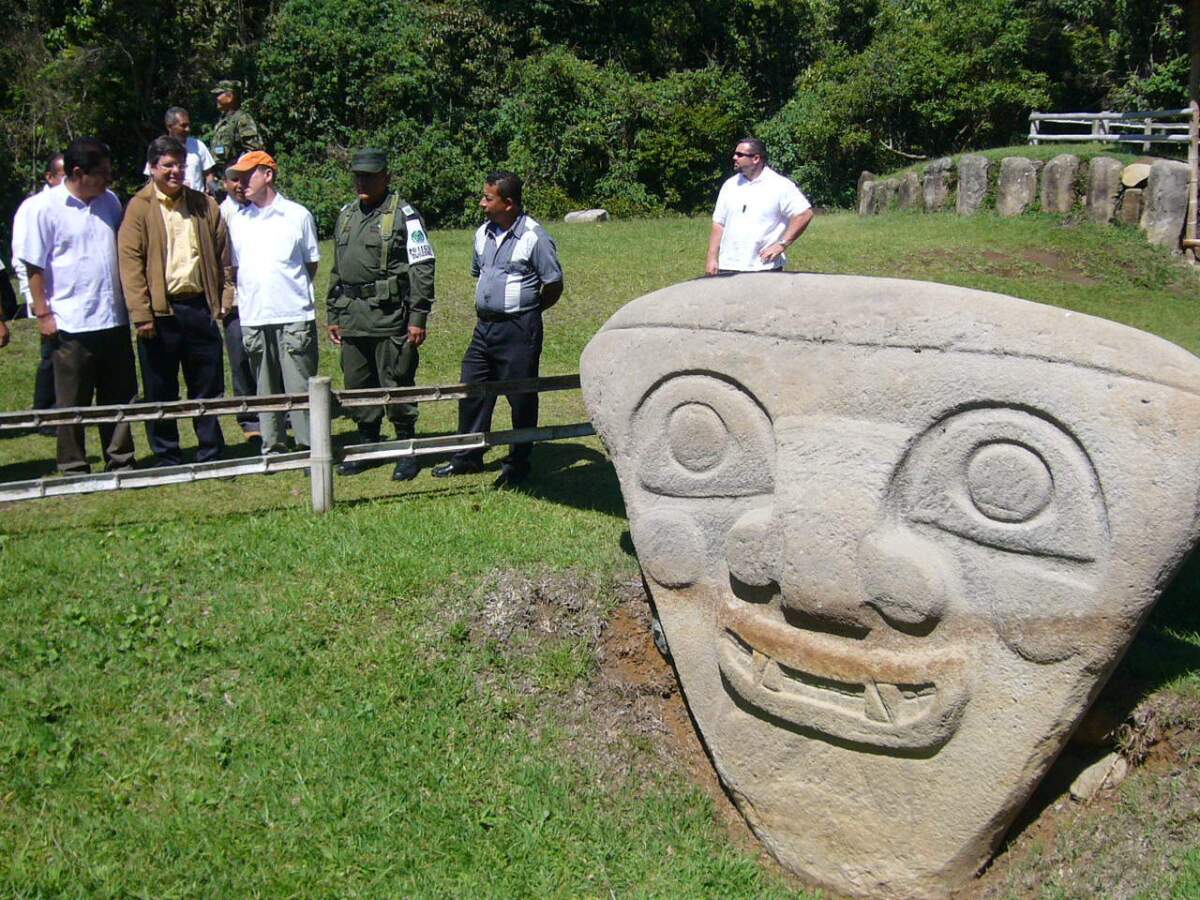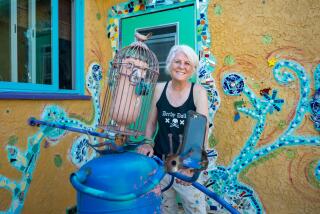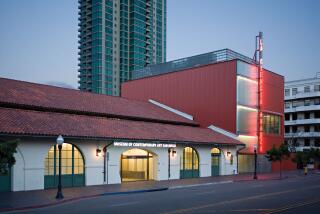Colombia calls off exhibition of sculptures in face of protests

- Share via
BOGOTA, Colombia -- Colombia’s Culture Ministry on Wednesday called off the largest museum exhibition in decades of stone sculptures carved by a mysterious pre-Hispanic culture known as San Agustin after residents of the eponymous southern township blocked the removal of 20 monoliths that were to have been the centerpieces of the show.
Most of the 20 statues – some measuring 6 feet in length - were crated and ready for transport in the San Agustin museum complex in southern Colombia on Saturday when hundreds of locals blocked the entrance to prevent trucks from loading them. The government deployed soldiers and police but decided against forcing their way into the museum.
The exhibit, to have opened in Bogota on Nov. 28, was backed by sponsor Ecopetrol, the state-controlled oil company, to mark the 100th anniversary of excavations in San Agustin by German ethnologist Konrad Preuss, who helped uncover many of the pieces now in the town’s museum and archaeological park.
But Preuss’ taking of 35 statues to Berlin in 1919 has been a sore point with locals who argued in recent public forums that honoring Preuss was a mistake and that any commemoration should involve the return of the pieces that Preuss took to Berlin. Three are on view at the Ethnological Museum in the Dahlem suburb of Berlin, and the rest in the museum’s storage.
In an interview published by La Nacion newspaper in Neiva, Fabian Sanabria, the director of the ministry’s anthropology branch known by its Spanish initials ICANH, blamed the protests on “paid professional agitators.” The show would have exposed Colombian culture to a broader audience, he said, while boosting high-end tourism to the zone.
Schoolteacher Diego Munoz, who teaches at the Estrella elementary school in San Agustin and who was a leader of the protests, denied that the protests were sparked by outsiders, insisting they were a spontaneous expression of community opposition to the three-month loan of the statues.
“Honoring Preuss was an invention that ignored the interests and concerns of the community,” Munoz said. “Even Mother Nature opposed their removal. The night before the trucks came, there was a storm with rain, wind and trees uprooted as we have never seen.”
Munoz added that locals also opposed the statues’ removal for economic reasons, saying the three-month absence would have hurt the community’s tourism-based economy. Some of the statues, anchored with concrete and rebar after a wave of thefts in the 1990s, were damaged by the workers who extracted them, he said.
The Yanakona indigenous community that lives near the archaeological park outside San Agustin in southern Huila province also opposed the removal of the statues, which they regard as sacred objects, Munoz said.
“All of us in town believe the future destiny of these archaeological treasures should be here in San Agustin rather than in other places, out of their context, out of the magical surroundings that are the reason people want to experience them,” said David Dellenback, an Oregon native and local resident who has led a campaign to repatriate the Berlin statues.
“The two issues are connected. We’ve done half the work. A real commemoration would have celebrated the return of the Berlin statues which have been locked away in a cellar for the last century. So the ministry should now turn 180 degrees and bring back them back,” said Dellenback, who has written two books on San Agustin sculptures.
According to local news reports, Huila state Gov. Carlos Mauricio Iriarte made a last ditch effort Monday to persuade locals to agree to the transfer, to no avail.
ALSO:
Markets, analysts disappointed by results of China plenum
Death of British spy found in locked gym bag ruled ‘accident’
Army accused of allowing blacklisted Afghan contractor inside prison
Kraul is a special correspondent.
More to Read
Sign up for Essential California
The most important California stories and recommendations in your inbox every morning.
You may occasionally receive promotional content from the Los Angeles Times.










